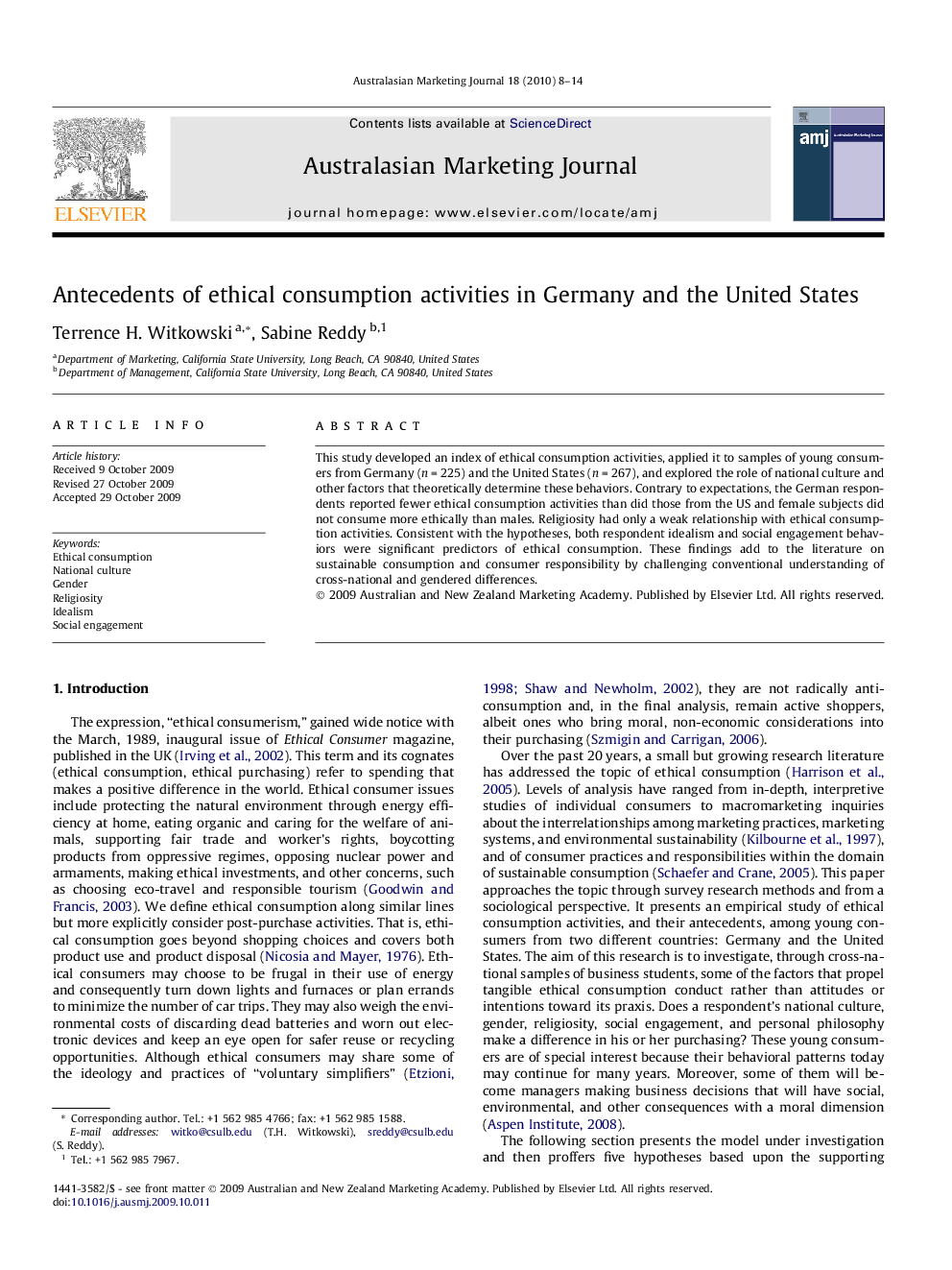| Article ID | Journal | Published Year | Pages | File Type |
|---|---|---|---|---|
| 1027105 | Australasian Marketing Journal (AMJ) | 2010 | 7 Pages |
Abstract
This study developed an index of ethical consumption activities, applied it to samples of young consumers from Germany (n = 225) and the United States (n = 267), and explored the role of national culture and other factors that theoretically determine these behaviors. Contrary to expectations, the German respondents reported fewer ethical consumption activities than did those from the US and female subjects did not consume more ethically than males. Religiosity had only a weak relationship with ethical consumption activities. Consistent with the hypotheses, both respondent idealism and social engagement behaviors were significant predictors of ethical consumption. These findings add to the literature on sustainable consumption and consumer responsibility by challenging conventional understanding of cross-national and gendered differences.
Related Topics
Social Sciences and Humanities
Business, Management and Accounting
Marketing
Authors
Terrence H. Witkowski, Sabine Reddy,
